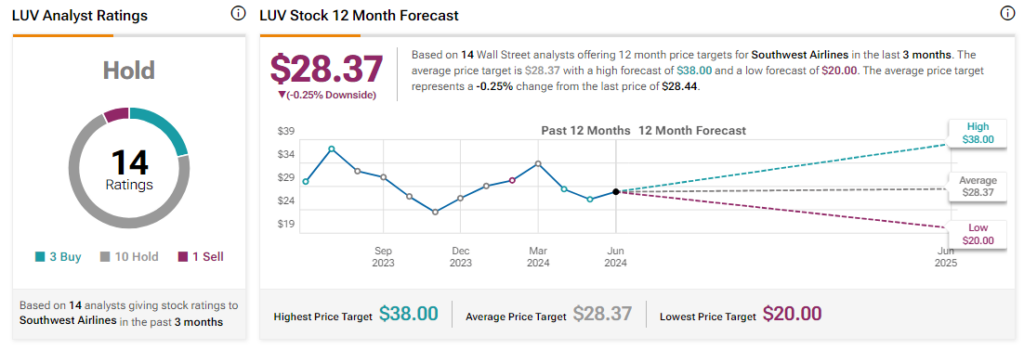Southwest (NYSE:LUV) Airlines’ CEO Bob Jordan stated on Wednesday that he did not intend to resign from the company as the low-cost airline faces rising pressure from activist investor Elliott Management. Jordan, who has been at Southwest for 36 years, stated, “I have no plans to resign.”
Elliott Management picked up a nearly $2 billion stake in the airline earlier this week and has called for leadership and board changes at the company. Following Elliott’s acquisition of the stake, Southwest signaled that it was open to dialogue with its shareholders and would value “their perspectives related to enhancing shareholder value.”
Southwest’s CEO’s View on the Proposed Changes
Jordan called Elliott’s proposed changes “fairly light” and noted that Elliott might suggest bag fees. However, Jordan stated that Southwest’s data indicated that nearly 50% of its customers choose the airline for its no-bag-fee policy.
Jordan added, “You need to be well-informed before proposing changes to Southwest’s business model. Elliott is not directing the company.” Southwest plans to unveil a “very broad plan” at its investor day later this year.
Boeing’s Aircraft Delivery Delays Continue to Weigh on LUV
Additionally, Jordan, while speaking to reporters, stated that Southwest now expects to receive only 20 airplanes from Boeing (NYSE:BA) this year instead of the 80 originally expected. Furthermore, LUV does not expect to begin using Boeing’s smaller Max 7 plane until 2026 as it is still awaiting certification.
Southwest has been underperforming peers like Delta Air Lines (NYSE:DAL), despite solid travel demand that is defying macro challenges. Increased labor costs related to new contracts and delays in deliveries of new aircraft from Boeing are weighing on Southwest’s results.
In Q1 2024, Southwest’s adjusted loss per share widened to $0.36 from $0.27 per share in the prior-year quarter. The company’s operating revenue grew 11% to $6.3 billion but lagged analysts’ consensus estimate of $6.4 billion.
Is LUV a Good Buy Now?
Analysts remain sidelined about LUV stock, with a Hold consensus rating based on three Buys, 10 Holds, and one Sell. Over the past year, LUV has declined by more than 10%, and the average LUV price target of $28.37 implies a downside potential of 0.3% from current levels.

















